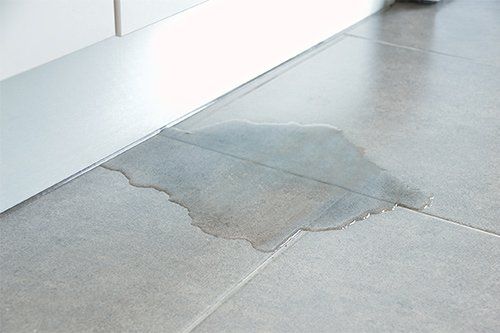Exploring Why Leak Issues Can Be So Common Within Your Home
Exploring Why Leak Issues Can Be So Common Within Your Home
Blog Article
What're your opinions about How Fast Water Damage Can Ruin Your Home?

Leaks not only cause waste of water but can additionally create unneeded damages to your house and promote undesirable organic growth. Water leaks may go undetected considering that many of the pipework in our house is concealed. By understanding and looking for daily situations that trigger leakages, you can protect your home from future leakages as well as unnecessary damage. Today, we will look at six leakage creates that may be creating your pipelines to leak.
Elbowing in roots
Most water leakages start outside the house as opposed to inside it. If you observe an abrupt reduction in water pressure, claim in your tap, take time to head out and also examine your lawn. You may see damp patches or sinkholes in your lawn, and that might imply that tree roots are getting into water lines triggering water to leak out. You can have your plumber check for breach, specifically if you have trees or bushes near your property.
Rusty water systems
This could be the cause of staining or bending on your water pipelines. If our plumbing system is old, consider replacing the pipes considering that they are at a greater threat of deterioration than the more recent versions.
Defective Pipeline Joints
The factor at which your pipelines attach is regularly the weakest web link in the waterline. Pipeline joints can wear away with time, causing water leakages. The bulk of pipe joints are not quickly noticeable. If you have loud pipes that make ticking or banging noises, specifically when the hot water is turned on, your pipeline joints are most likely under a great deal of pressure. It is suggested to have your plumber evaluate your system annually.
Instant temperature changes.
Extreme temperature level adjustments in our pipelines can cause them to broaden as well as get suddenly. This growth and tightening may cause splits in the pipes, especially if the temperature level are below freezing. It would be best if you watched on exactly how your plumbing functions. The visibility of the formerly mentioned situations often suggests a high danger.
Poor Water Connectors
At times, a leak can be triggered by loosened hoses and pipes that provide your devices. In instance of a water links leak, you may discover water running directly from the supply line or puddles around your home appliances.
Blocked Drains
Blocked drains pipes may be bothersome and also inconveniencing, but they can occasionally end up causing an overflow bring about burst pipes. Keep getting rid of any products that might go down your drains pipes that can obstruct them to prevent such troubles.
All the above are root causes of leakages yet not all water leakages result from plumbing leakages; some leaks might originate from roofing leaks. All leakages ought to be fixed quickly to prevent water damages.
Leaks not just trigger waste of water but can also trigger unnecessary damages to your house and also advertise undesirable natural development. By recognizing and looking for everyday situations that cause leakages, you can protect your home from future leakages and also unneeded damages. Today, we will look at six leak creates that might be triggering your pipes to drip.
At times, a leakage can be created by loose hose pipes and also pipes that provide your appliances. In case of a water links leak, you may discover water running straight from the supply line or puddles around your home appliances.
How To Check For Water Leak In Your Home
How To Check for Leaks
The average household's leaks can account for nearly 10,000 gallons of water wasted every year and ten percent of homes have leaks that waste 90 gallons or more per day. Common types of leaks found in the home are worn toilet flappers, dripping faucets, and other leaking valves. These types of leaks are often easy to fix, requiring only a few tools and hardware that can pay for themselves in water savings. Fixing easily corrected household water leaks can save homeowners about 10 percent on their water bills.
To check for leaks in your home, you first need to determine whether you're wasting water and then identify the source of the leak. Here are some tips for finding leaks:
Take a look at your water usage during a colder month, such as January or February. If a family of four exceeds 12,000 gallons per month, there are serious leaks.
Check your water meter before and after a two-hour period when no water is being used. If the meter changes at all, you probably have a leak.
Identify toilet leaks by placing a drop of food coloring in the toilet tank. If any color shows up in the bowl after 10 minutes, you have a leak. (Be sure to flush immediately after the experiment to avoid staining the tank.)
Examine faucet gaskets and pipe fittings for any water on the outside of the pipe to check for surface leaks.
Undetected water leaks can happen without the home or business owner even realizing. If you suspect a water leak, but not able to find the source. It is time to contact a professional water leak detection service, The Leak Doctor.
How To Find a Water Leak In Your Home
https://www.leakdoctor.com/blog/How-To-Check-For-Water-Leak-In-Your-Home_AE197.html

I found that piece on Most Common Causes of Leaky Pipes when doing a search on the internet. Sharing is nice. You never know, you will be helping someone out. Thank you so much for taking the time to read it.
Get it sorted! Report this page